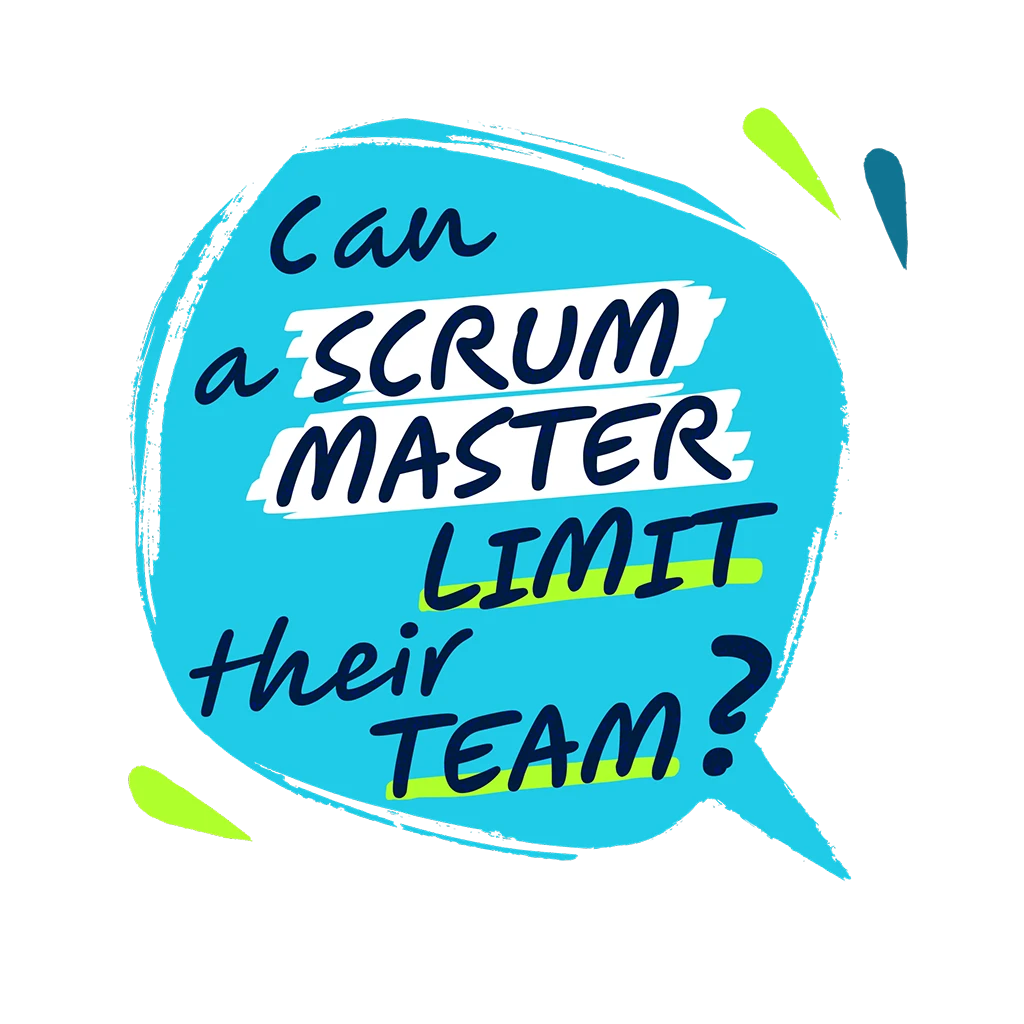When Scrum Masters adopt a more heroic stance, stepping in to resolve every issue themselves or not experimenting with new approaches, they can repress the team’s opportunity to learn and self-manage.
Scrum Masters are accountable for the effectiveness of teams set to achieve product goals and business objectives.
There are instances where their actions or inactions can inadvertently limit the team’s potential and growth. This type of approach not only disadvantages the Scrum Master but also deprives the team of the chance to develop problem-solving skills.
1. Heroic Actions vs. Team Empowerment:
When Scrum Masters take on too much responsibility for solving problems, they can inadvertently prevent the team from taking the initiative and solving challenges independently. This can lead to a situation where the team becomes dependent on the Scrum Master to fix issues or remove impediments they can and should solve, inhibiting their growth and self-management.
2. Comfort Zone Confinement:
Staying within a familiar set of practices and not experimenting with new approaches can limit the team’s potential. A Scrum Master’s reluctance to venture beyond their comfort zone limits the team’s ability to adapt to changing environments or face new challenges effectively.
3. Misjudging Team Maturity:
Failing to assess the team’s maturity level accurately can lead to either micromanagement or lack of guidance, which can demotivate the team. Scrum Masters must tailor their approach to the team’s current stage of development.
4. Adapting to Change and Encouraging Flexibility:
In a rapidly changing environment, a Scrum Master’s reluctance to embrace change can severely limit the team’s potential. By fostering an adaptive mindset and encouraging flexibility in approaches and strategies, a Scrum Master can ensure that the team remains resilient and capable of effectively navigating the complexities of their challenges.
5. Over-Facilitation of Events:
While the structure is essential, controlling every aspect of meetings and interactions can suppress spontaneous collaboration and idea-sharing. Scrum Masters need to practice a balance between providing guidance and allowing the team the freedom to explore and innovate. Involving the team in facilitation and helping them gain facilitation skills and confidence is always a good idea.
6. Not Enabling the Team in Decision-Making:
A Scrum Master can inadvertently limit the team by making all the decisions, thus preventing the team’s ability to self-manage. Encouraging the team to make their own decisions within the boundaries of the business policies and the product’s goals fosters a sense of ownership and accountability, which is essential for the team’s growth and success.
The effectiveness of a Scrum Master is rooted in their ability to balance guidance with empowerment, fostering an environment that encourages self-management, innovation, and collaboration. By avoiding the pitfalls of over-involvement, fostering an open environment, and continuously adapting to the team’s and customer’s needs, a Scrum Master can unlock a team’s full potential.
These stances will help the team actively contribute to problem-solving and enhance their skills and confidence. Through this adaptive and supportive approach, a Scrum Master can help the team exercise a sense of ownership in their work, laying the foundation for sustained success and continuous improvement.


